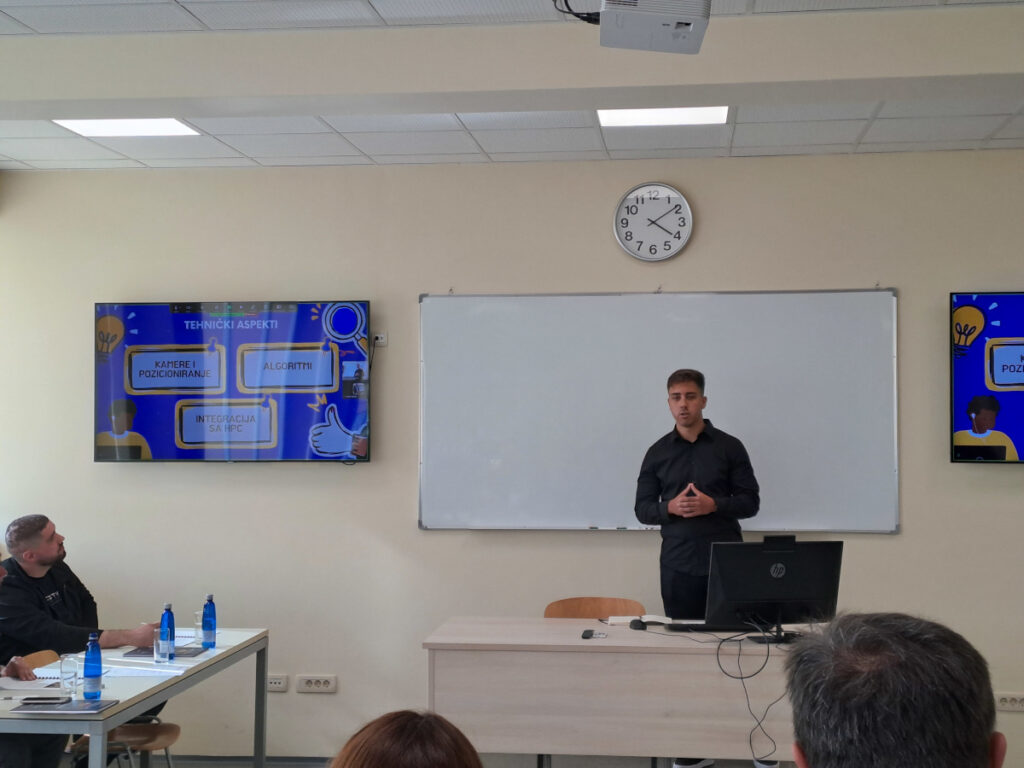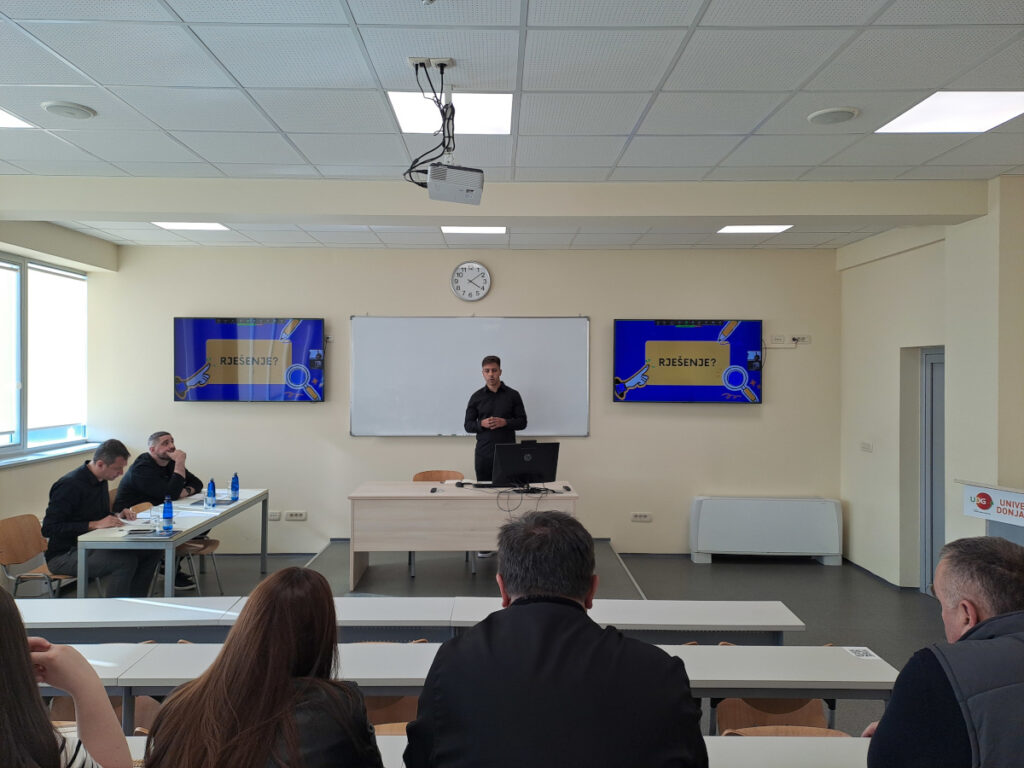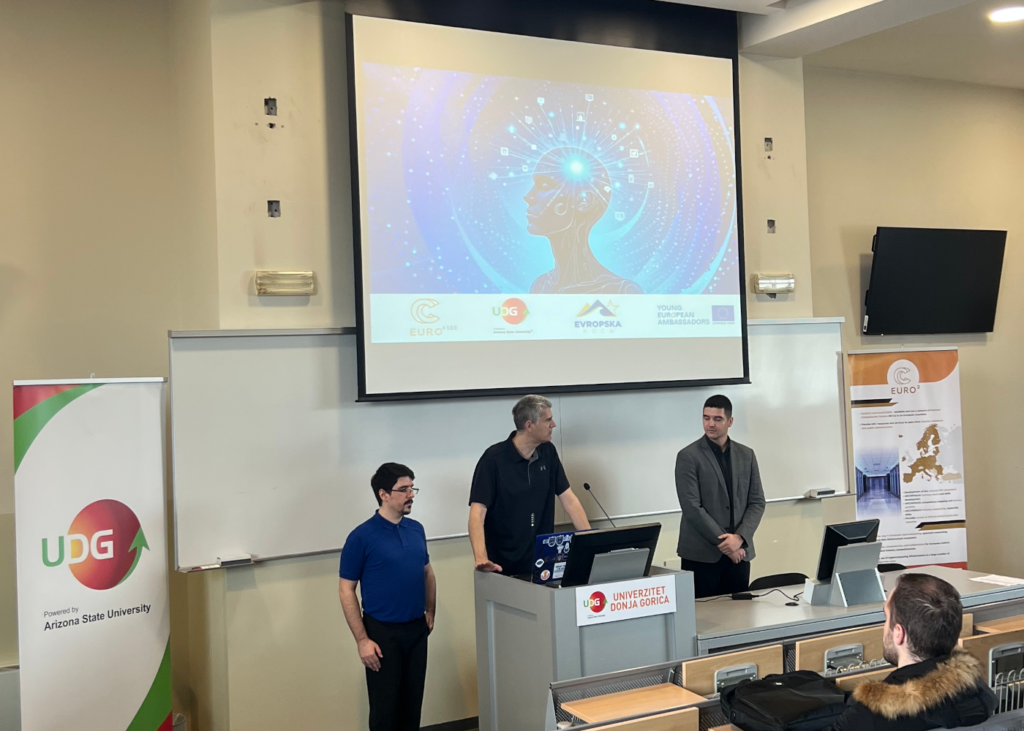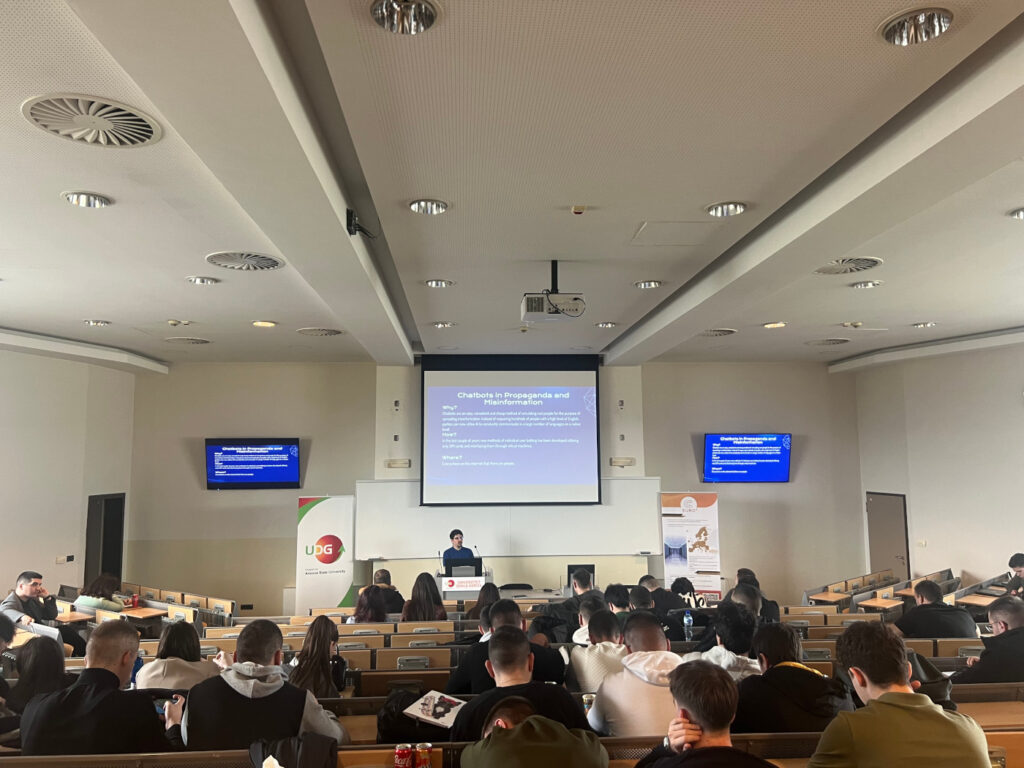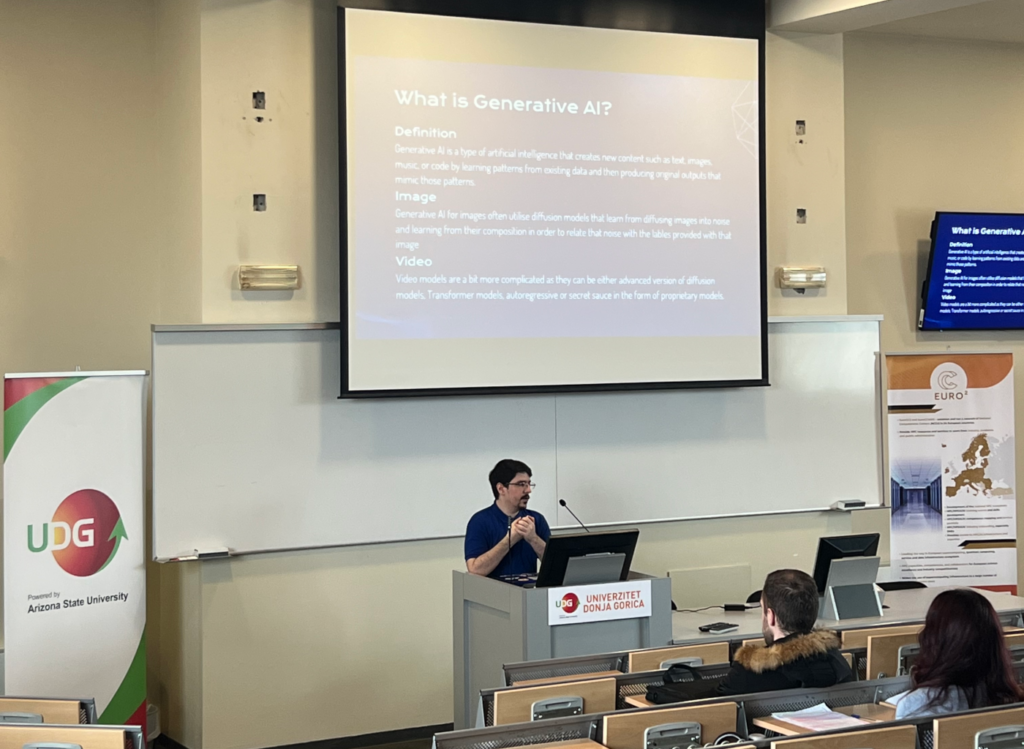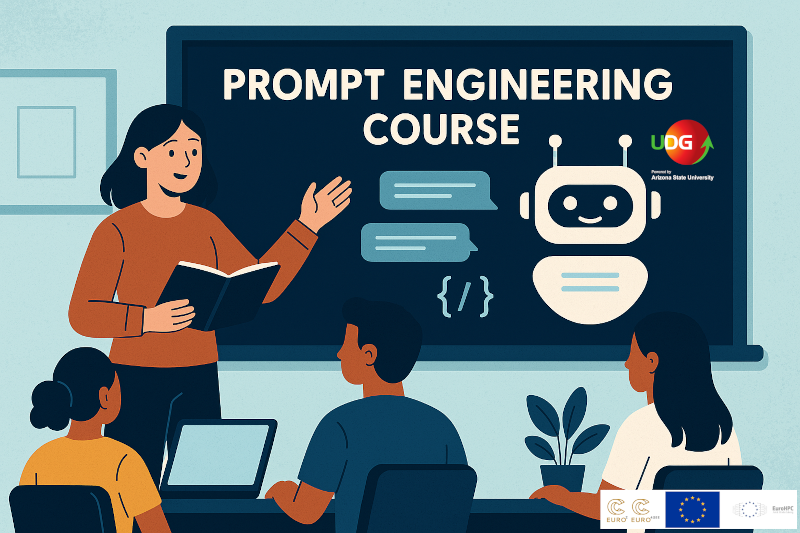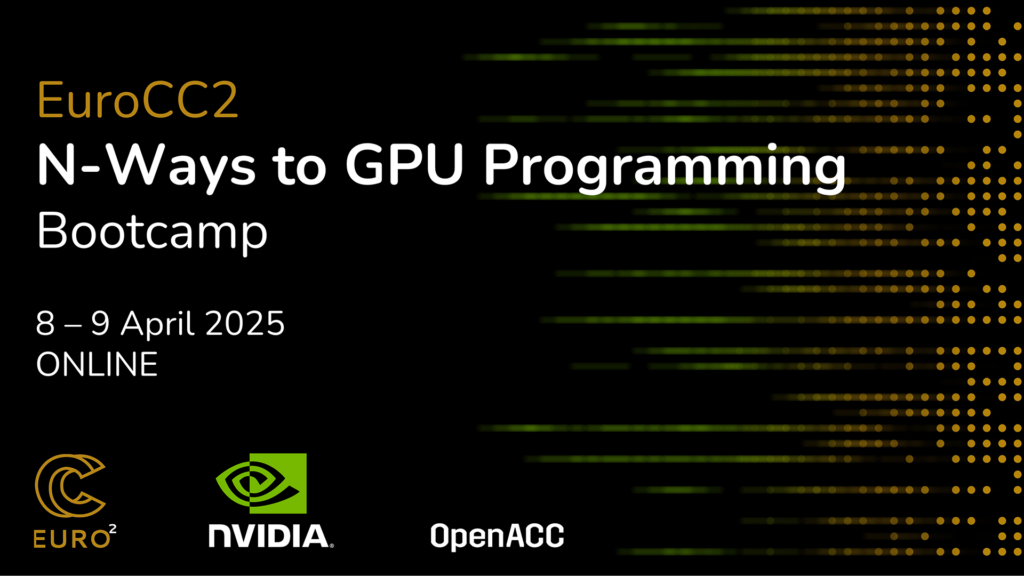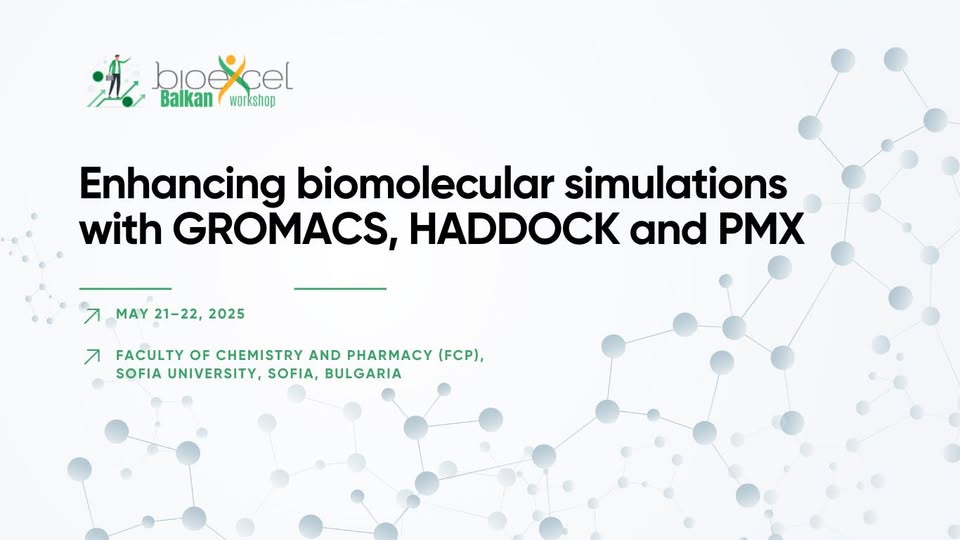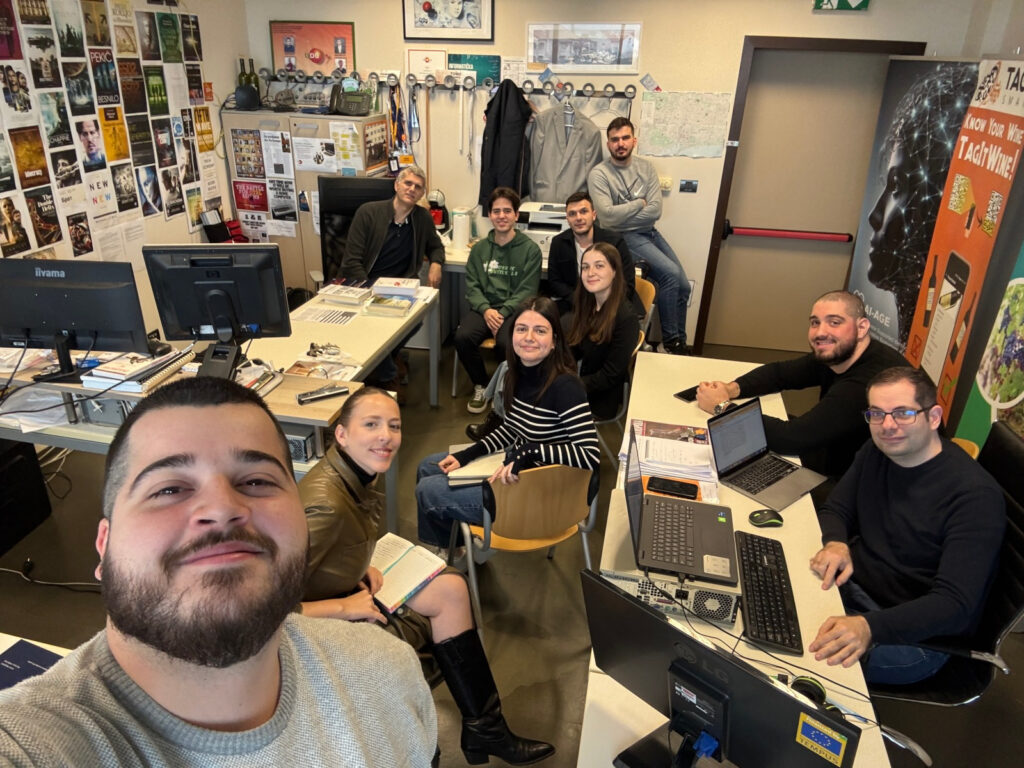We invite your company to join our specialized training on High-Performance Computing (HPC) and Artificial Intelligence (AI), designed for business users. The training will take place on April 16, 2025, at 10:00 AM at the University of Donja Gorica (UDG).
Introduction to HPC is a short course that requires no prior technical knowledge. It is designed to provide beginners with fundamental insights into high-performance computing, addressing key questions: WHY and HOW to use supercomputers.
This course offers practical insights into how HPC and AI can enhance research, development, and innovation, optimize business processes, and transform business models across various industries.
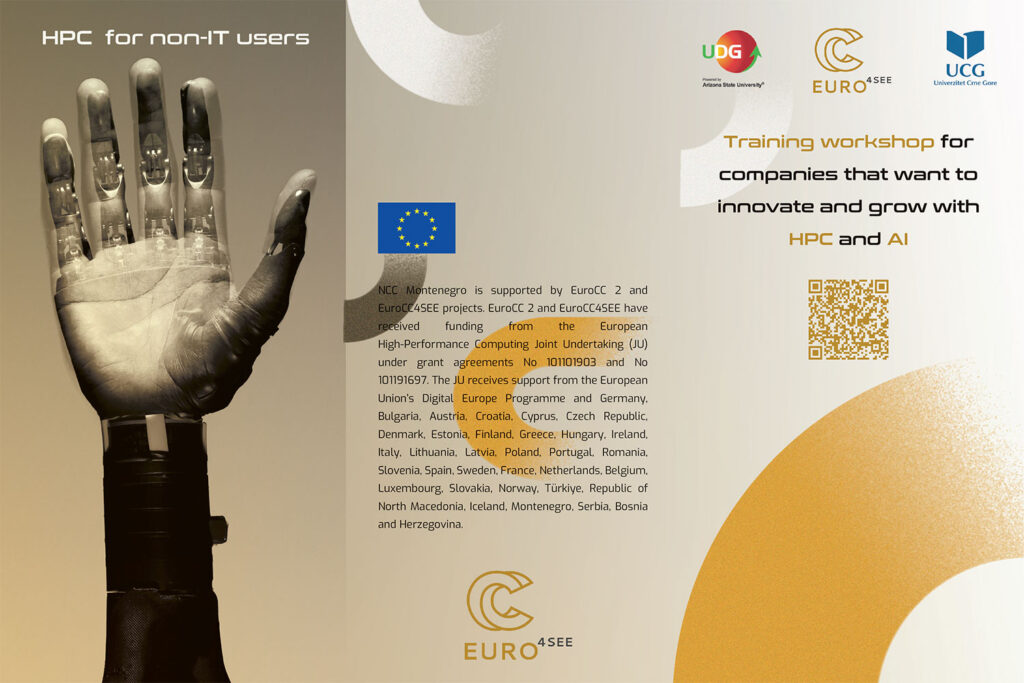
During the course (90 minutes + direct consultations upon request), participants will:
- Gain an understanding of the technical and commercial aspects of HPC systems and applications
- Explore the possibilities and benefits of HPC and AI through industry examples and success stories
- Learn how to assess readiness for adopting HPC technologies
- Learn how to access Europe’s top supercomputers (at no additional cost! 😊).
The course is tailored for managers, experts, and professionals who want to understand the potential of modern technologies and their applications in everyday business operations. It is ideal for those seeking advanced computing solutions (HPC) and intelligent algorithms (AI) to enhance their work and business.
Join us and discover how HPC and AI can become your competitive advantage!
📅 Date & Time: April 16, 2025, at 10:00 AM
📍 Venue: Amphitheater AS, University of Donja Gorica
📝 Registration: https://forms.gle/wHq31ioQaQbLjqMU9
📩 For more information: Sanja.nikolic@udg.edu.me


